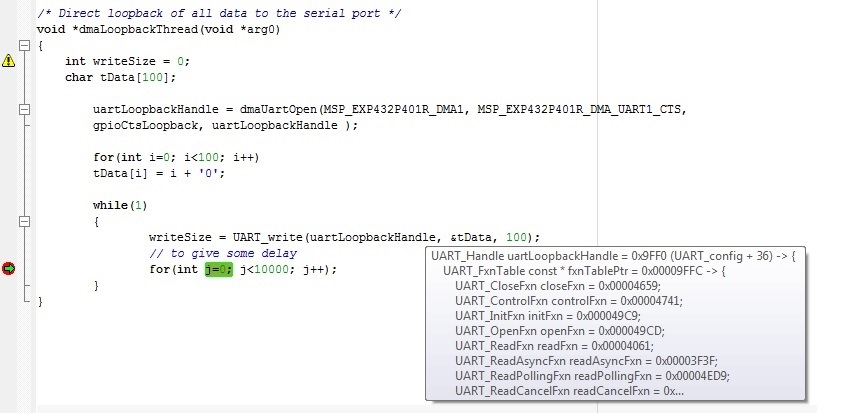Part Number: MSP432P401R
Tool/software: TI-RTOS
Hi, we have been working on MSP432P401R Launchpads using EUSCI A0/A2 as 1.5MBaud UART and found out that some characters are missing in every string of characters transmission. And the characters are sent in running sequence. We have checked that transmitted data using logic analyzer, they are all correct. So the problem lies with the UART receive.
The set up works perfectly fine for other baudrates such as 115200, 460800, 921600.
To segregate the problem from our main application code which is running on multiple threads on two UARTs, We have reduced it to single threaded application running on 1 UART, the problem still persists.
We have attempted the following methods but the operation on 1.5MBaud still fails:
1) Changed DCO clock frequency from 12MHz to 48MHz;
2) Changed from DCO to use HFXTCLK External clock;
3) Changed driver RingBuffer byte size from 32 to 320 or even to a larger size of 1024;
4) UART_read is configured as blocking mode or callback mode.
5) I also tried the UART_readPolling to see if it's interrupt issue, there are still missing characters.
6) Use of a shorter sequence string such as 30 bytes instead of 320 bytes, there are still missing characters.
Finally we use UART driver to check for errors in the hwi (UARTMSP432_hwiIntFxn), and for those problematic sequence with missing characters, the hardware interrupt returns an overrun error. It seems that the MSP432 isn’t fast enough to receive back-to-back characters at 1.5MBaud.
Kindly revert to us any pointers to solve the 1.5MBaud issue as this is very urgent. Thanks.



